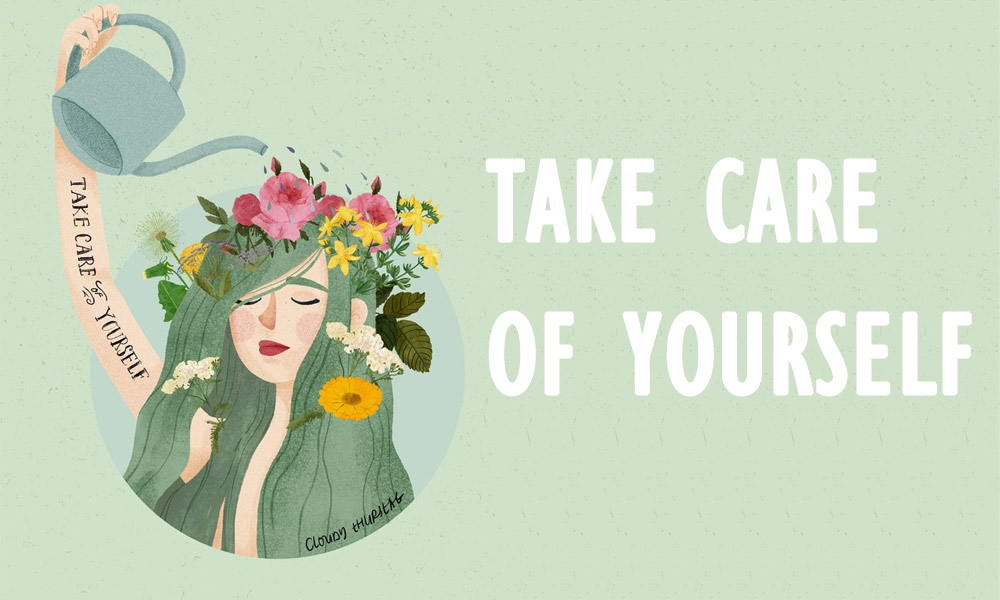Lifestyle
7 Ways to Practice Self Care
The relationship you have with yourself is the most important relationship in your life. If you don’t develop and maintain a positive relationship with yourself, you will find that it is extremely difficult to sustain healthy relationships with other people. Unfortunately, most people tend to neglect their relationship with themselves over relationships with family, friends, romantic partners, etc. It’s easy to sacrifice taking care of yourself in favor of taking care of other people. Long-term, though, this neglect backfires. It prevents you from being able to appreciate and enjoy the bonds you develop with the people in your life.
A major part of maintaining a healthy, positive relationship with yourself is taking good care of yourself physically, emotionally, mentally, and even spiritually. Self care involves staying in tune with yourself and treating yourself with the same kindness and care you would show to your sister or your best friend. Optimal self care varies from person to person. Developing a self care routine that keeps you healthy and happy depends on your own life, personality, and values. Let the variety of techniques in this post inspire you to develop the self care habits that are most effective at improving your personal health and happiness.
1. Be Alone

We live in a world where we are constantly connected. Our phones are buzzing and our Facebook messenger is dinging.
Way too many people are terrified to be alone. They feel uncomfortable, depressed, or even worthless when they’re not surrounded by other people. It is true that humans are naturally social creatures who aren’t meant to live in isolation, and everyone can agree that loneliness is a very difficult and painful emotion. That being said, it’s a mistake to equate being alone to being lonely. It’s hard to develop a healthy relationship with yourself if you can’t stand to be in your own presence.
An easy way to find joy in being alone is through the practice of solitary activities that boost your mood. There are countless solo activities that can help you adapt–and even look forward–to spending time by yourself. Go for a walk. Read a book. Take yourself shopping. Any activity that piques your interest and doesn’t involve other people builds how comfortable and content you feel with being alone sometimes.
2. Take Your Time
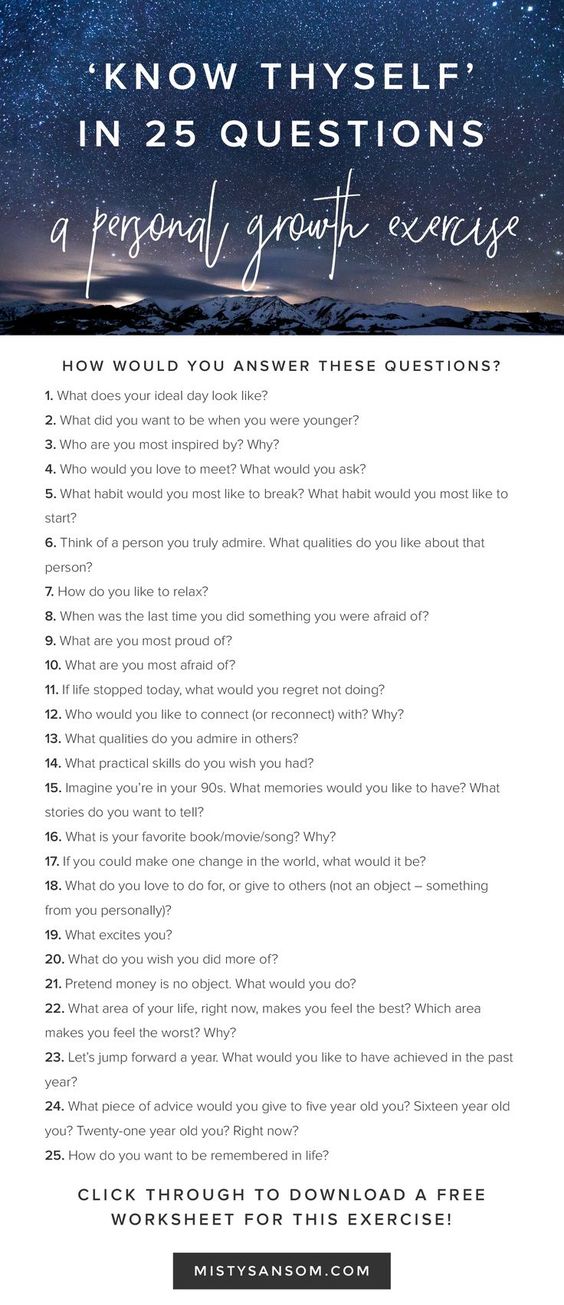
An article I wrote for the Huffington Post on 25 questions you can ask to know yourself just that little bit more. Knowing who you are and what you want is the first step in finding your purpose.
You probably wouldn’t expect to develop a deep relationship with a friend or romantic interest in a few days or even a few months. Your expectations for your relationship with yourself shouldn’t be any different. If you’ve neglected self care for a long time, it will take you some time to get to know yourself again.
Don’t get discouraged and keep up with whatever regular self care habits you’ve chosen to incorporate into your routine. Congratulate yourself on making an effort to better yourself and your relationship with yourself, but don’t expect to figure yourself out completely after a few mani-pedis or a week of healthy eating.
3. Move Your Body
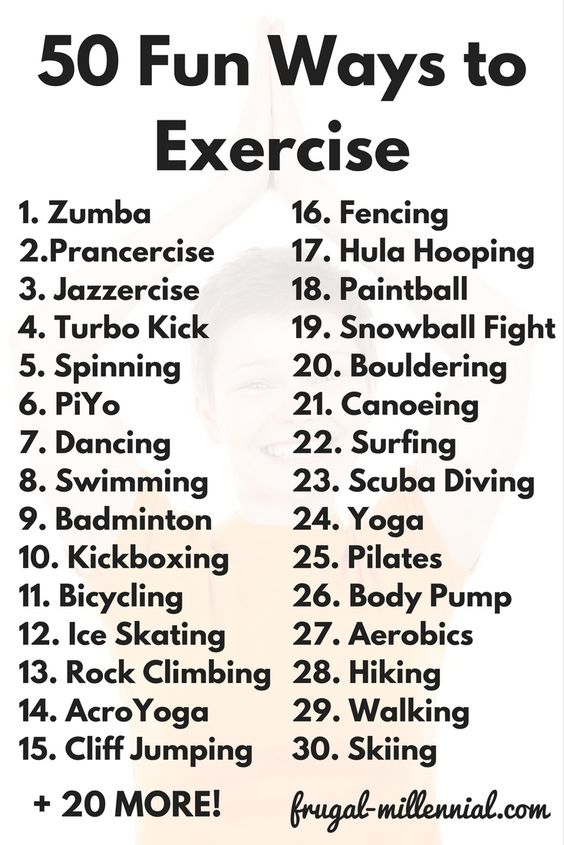
50 Fun Ways to Exercise (For People Who Hate Working Out) via @frugal_jen
Exercise is a very effective form of self care, as it benefits both your mind and your body. The physical and mental benefits of exercising are common knowledge. However, many people still avoid daily workouts because they are painful, difficult, and generally feel good in the moment.
Don’t try to force yourself into rigorous daily strength training routines in the name of self care. You can still reap the positive mental and physical rewards of exercise through less intensive workouts. Find a cardio activity you enjoy, such as hiking, yoga, Zumba, or even just a brisk morning walk around your neighborhood. All you have to do is move your body.
4. Talk to Yourself
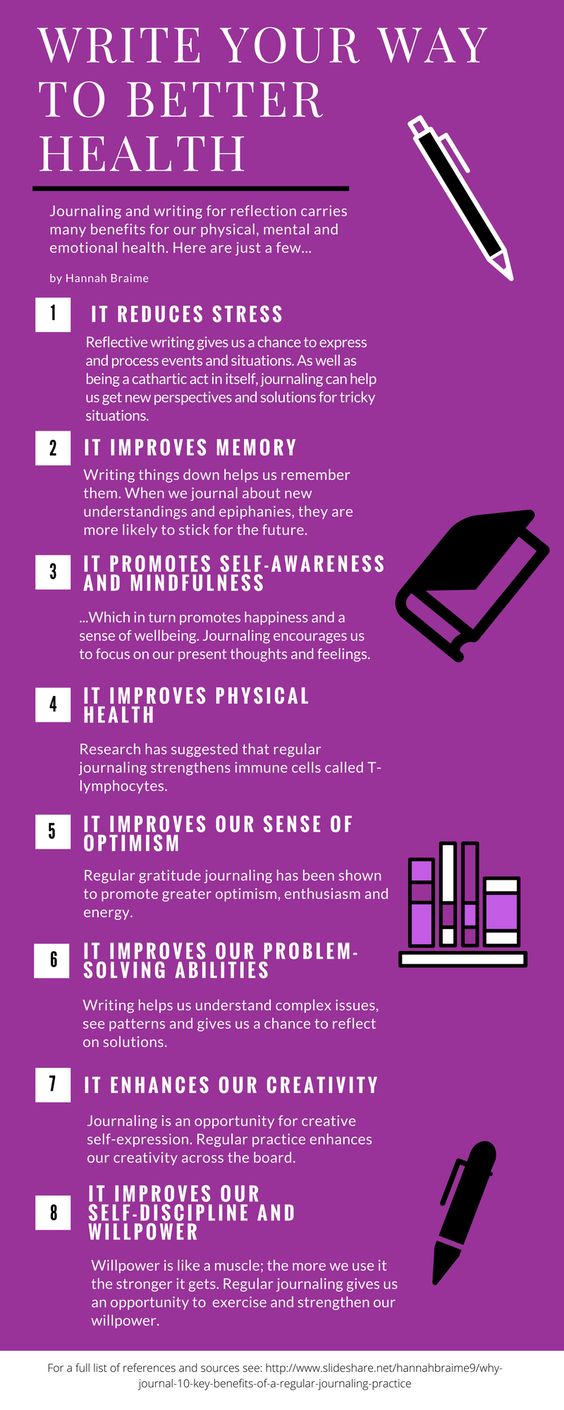
Regular writing is good for more than just clearing your head.
Maintaining healthy self-communication is a vital part of building a positive relationship with yourself. Don’t keep all of your thoughts inside your own head. Talking out loud to yourself when you’re alone can help you become more in tune with your own feelings.
If talking to yourself out loud makes you uncomfortable, try communicating with yourself through written language instead. Try keeping a journal by your bed and jotting down your thoughts and feelings at the end of the day. Daily journaling can be a very powerful form of emotional expression and self-communication.
5. Learn Something New

Needs to be out there
Learning new things can increase your self-confidence and decrease feelings of depression or boredom. It can also help keep your brain healthy as you age.
The prospect of learning something new can seem daunting, especially if you already have a packed daily schedule. Start small to avoid stressing yourself out. Set a goal to read one online article–or watch a short video–about something new that interests you every day.
6. Get in the Flow
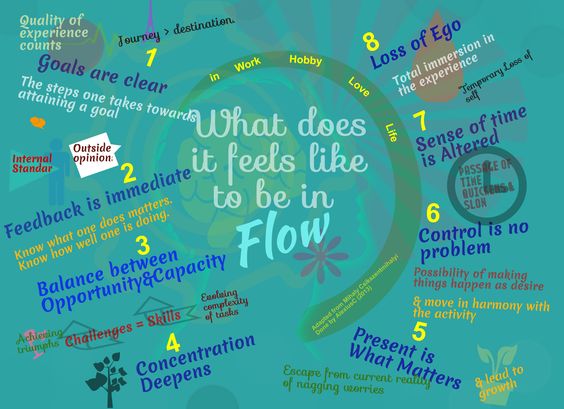
Source: Apliacabadosalfa.com; Adaptation from the book Flow by Mihaly Csikszentmihalyi
Flow is the feeling you get when you’re so involved in whatever you’re doing that the rest of the world completely falls away. Achieving this flow state on a regular basis is an effective self care technique for many people who prefer to remain active instead of relaxing.
The activities that conjure a state of flow for you depend on your own personal interests. Some people find their flow state in their work. Others find it in writing, creating art, or playing music. If you’re not sure what gets you in the flow, try inspiring the feeling by taking on a solo project like learning a new skill or tackling an overdue home renovation task.
7. Don’t Ignore Basic Needs
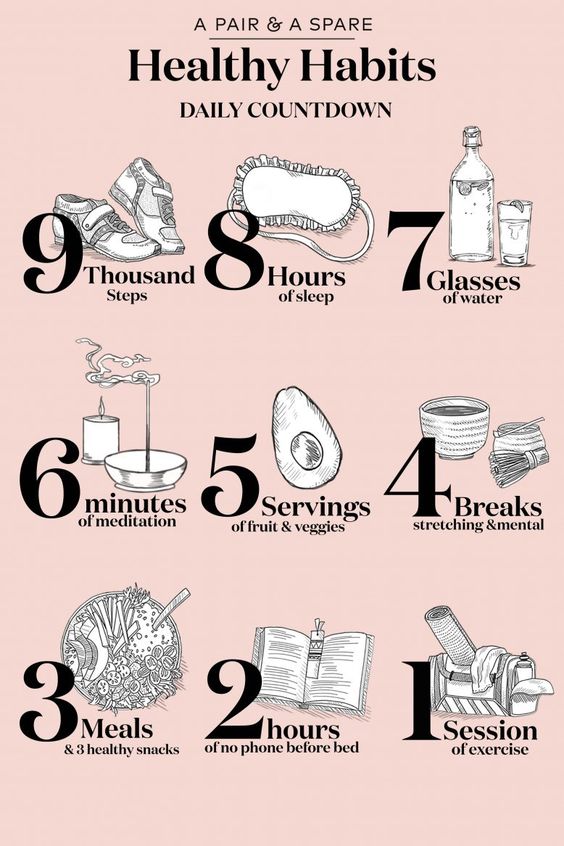
A Pair & A Spare | Question: Are you in need of a health and fitness reboot? (Because I am!)
Every human needs a few simple things to stay alive and function at a healthy level: namely food, water, and sleep. Failing to fulfill these basic needs leads to physical and emotional damage, and keeping up with them up lies at the very core of effective self care.
Make it a point to check in with yourself several times throughout the day to ensure that you’re adequately meeting your basic needs. If it’s 4 pm and the only thing you’ve eaten since you woke up is half a granola bar, cook yourself a healthy evening meal. Or, at least pick up a ready-made salad from the grocery store. Carry around a reusable water bottle to remind you to drink the recommended daily amount of water. Set an alarm on your phone to go off at a certain time each night to encourage you to stop whatever you’re doing and get to bed at a reasonable hour.
Maintaining a positive self care routine can have a transformative effect on your physical health, emotional well-being, confidence level, and ability to develop and maintain healthy relationships with the other people in your life. Try out some of these self care practices for yourself to see how being more attentive to your own needs and desires can help you get to know yourself on a deeper level, love yourself more, and change your life for the better. Subscribe to get more tips and suggestions on herstylecode.com

